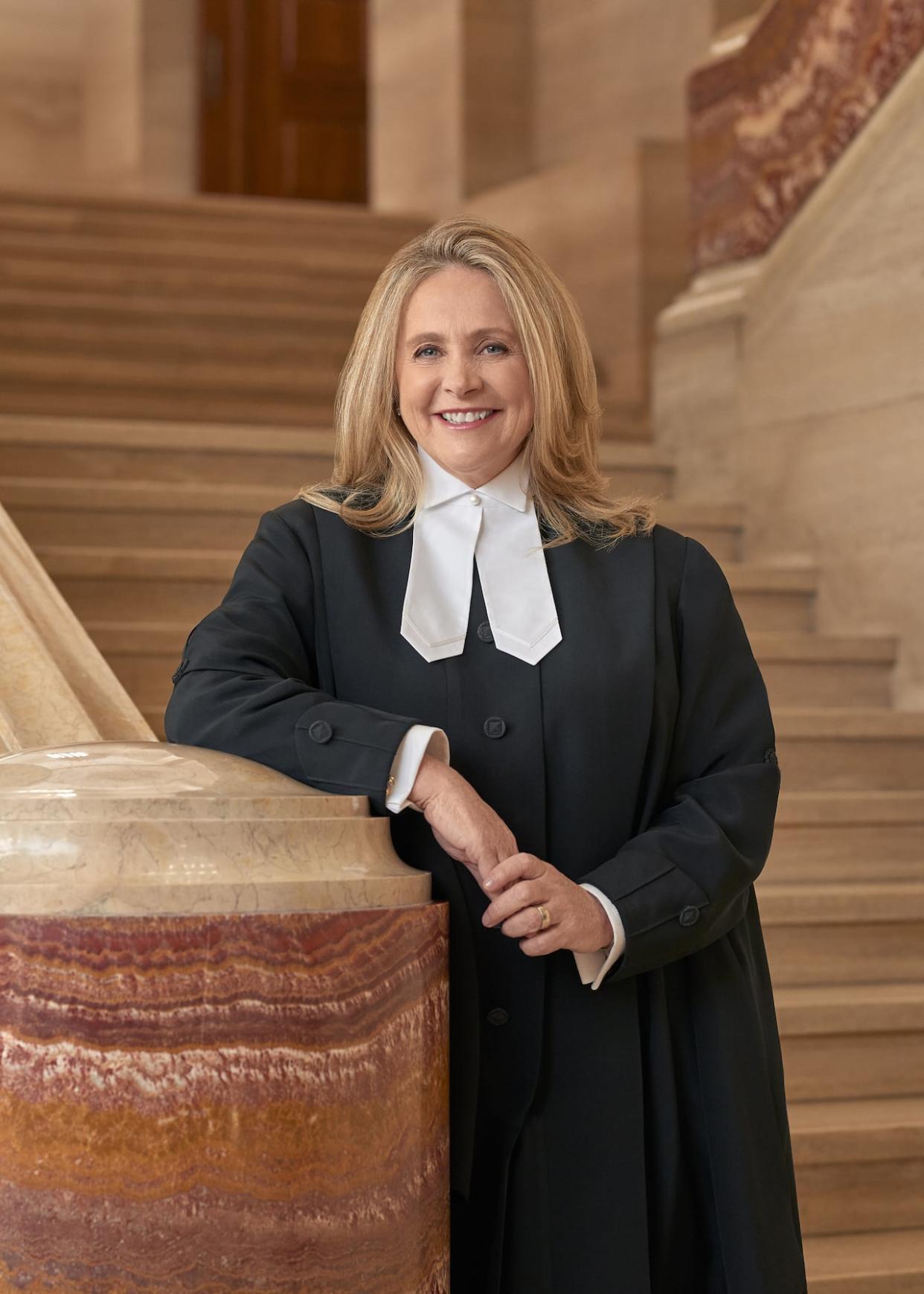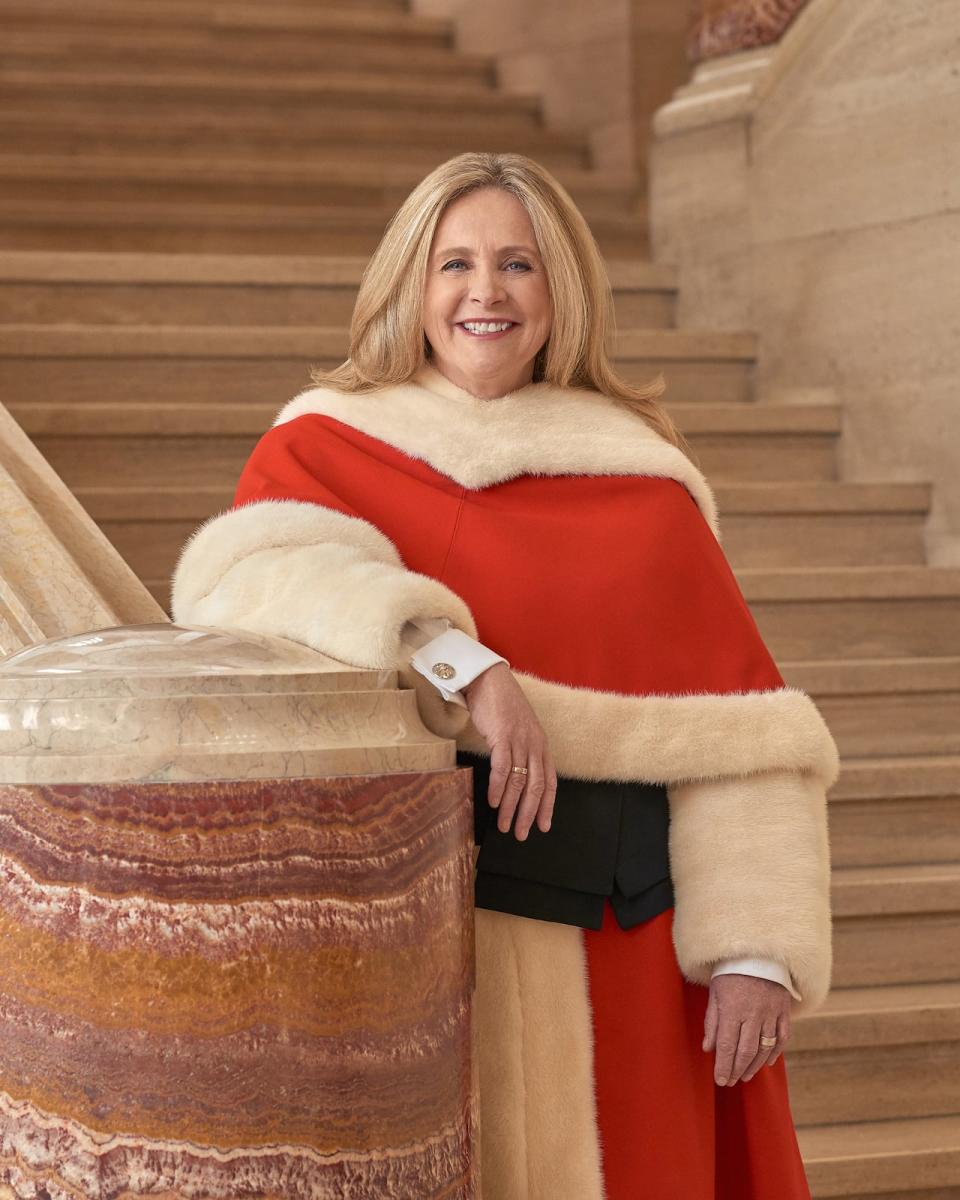'Do the right thing for the people': A Q&A with a Supreme Court justice

- Oops!Something went wrong.Please try again later.
It's been more than six years since Justice Sheilah Martin was appointed to Canada's highest court.
Born and raised in Montreal, Martin served on the Court of Queen's Bench of Alberta in Calgary from 2005, then in 2016 was appointed to the Courts of Appeal of Alberta, the Northwest Territories and Nunavut.
She was appointed to the Supreme Court of Canada in December 2017.
During her career as a judge, she focused on education, Indigenous issues and equality rights.
Martin gave a keynote speech at the Telus Centre on Friday as a University of Alberta alumna.
She spoke to CBC Edmonton AM host Tara McCarthy on Friday. The conversation has been edited for length and clarity.
Becoming a judge on the Supreme Court, that must be a dream for so many law students. Was this always a goal for you?
I can't say it always was because it's so statistically improbable that you would ever become a justice of the Supreme Court. But when I was a law student, I would read the decisions and say, 'Oh my gosh, who gets to make these? Who are these people?' And so it is a dream come true, no doubt. But I wasn't planning on it.
How did it all come together then for you?
I was a judge in Alberta for about 12 years and on the Court of Appeal for about a year and a half. And a vacancy became available that was opened up for everyone in the west and the north. And I sort of thought, well, you know, with age and stage if I didn't apply at that particular point in time I would probably never get another chance. So wanting to be courageous and bold and not have regrets when I was in my rocking chair at 80, I put in my application and it went very well, shall we say. I eventually got that thrilling conversation with the prime minister asking me if I would be his nominee on the court.
What an inspiring story to just put in the application.
Well, you know it was a difficult point in my life. I had just lost my husband and I was quite unsettled. And I looked and I thought, well, should I do this? Is this the right move? Is it the right move for my family, most of whom were in Alberta? Because you have to reside in Ottawa if you're a member of the Supreme Court of Canada. That's a legal obligation. And so it was a very big change at a very difficult time. I thought it was the right thing to do and I also wanted to try to be in public service. I thought, no, it's right to take a chance.
And it's been your life now for over five years. So what's the experience been like for you?
Do you know, it's an amazing experience. I remember being on the inside of the court, for example, having been there as a lawyer many times and asking myself what am I doing looking from the inside of the building into the courtroom as a judge. I mean it's thrilling, it's such a responsibility. There is a lot of work and we deal with matters that are definitionally of national importance. ... The law that we deal with is difficult. There's various opinions about what the best approach is and we have to look at all the precedent, all of the laws across the country and try to figure out what's the best solution for all of Canada.
It sounds like such an interesting challenge, I would imagine.
It really is an interesting challenge because at the Supreme Court level, a lot of the time there's a difference of opinion between let's say, Alberta, Ontario and Newfoundland, and what is the best rule. We're looking a little bit more forward, into the future to say what will the effect of this rule be. It's so nice to have a good sense of Canada because the rule has to work for all people whether in big cities or smaller cities or up north. It's a challenge to make sure that we're doing the right thing in law and being responsive to the public.
Now, a lot of your law studies, your law practice, all took place in Alberta. So how do you think your time in this province shaped you for this position?
It has to be completely formative. I left Quebec and McGill at the age of 24. I was introduced to Alberta in the best way because somebody at the University of Alberta, some generous donor, had made a scholarship and so kind of reached across the country and brought me here. I couldn't have afforded to do graduate work on my own. And so it was like the welcoming generosity of Alberta that got me here, got me studying, got me sort of the intellectual ability and the knowledge of law and the understanding of people. From here, I went to the University of Calgary. I taught there. I practiced all across the province. I was a judge and was a judge all across the province regardless of where you sit. So I sat everywhere from Grande Prairie to Medicine Hat. It completely shaped all of my sort of judicial instincts and all of my understanding of what law should be.

During her practice, she focused on education, Indigenous issues, and equality rights. (Jessica Deeks )
You did a lot of pro bono work with the Women's Legal Education and Action Fund, the Alberta Association of Sexual Assault Centres. Why were these sorts of causes and doing that kind of work so important to you?
I think it is partly this idea that I was given immense opportunities. And I also think that when you are given a position like being a lawyer, like having the right to speak for somebody else, that it's really important that people that don't have a full voice sometimes have access to it, to representation. And the pro bono work was a very important part of that and trying to make law into a vehicle that could be used to change the lives in a better way for real people was very important to me. And that was part of it. But I must say, I learned generosity from first receiving it.
When we look at the U.S., the Supreme Court is known for being a partisan and political institution. How do you think the systems compare?
Well, you know I think that the Canadian approach is a little bit different. We have different appointment procedures. I mean the prime minister does select, but there is a wider committee that looks at the individuals, who suggests names to the prime minister as opposed to it in the United States — it's usually the sole discretion of the president and those sorts of things.
We have a bit of a different approach in terms of how we select cases. And I think that what we see very strongly in the Canadian tradition is that we're not tied to a political party or an ideological approach or even a geographic region. The expectation is clearly that once you're appointed, we're dealing with two legal traditions, the civil law, the common law, French and English. We have to expand and do the right thing for the people according to law. We call them judicial opinions, but they're not our personal opinions if you know what I mean. They're based on law precedent. They're grounded in the evidence. We listen to a lot of different peoples' opinions in submissions about what the law should be and so the notion of judicial independence being impartial and neutral and not based on our own personal beliefs is very, very strong in Canada.

